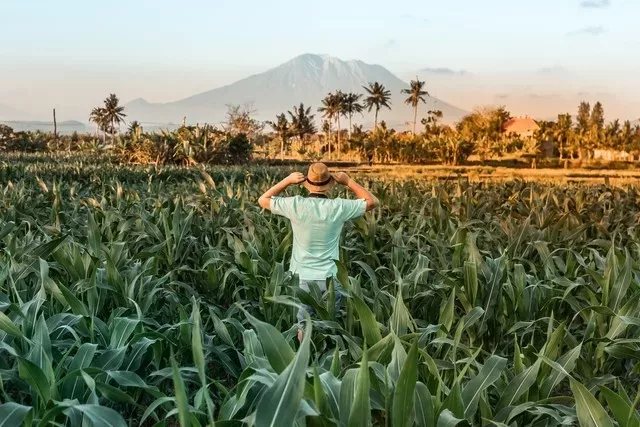Kerobokan, Bali – Following the tragic drowning of a 14-month-old Australian child who drowned at a villa in Bali, Royal Life Saving Australia has issued a warning for tourists visiting the popular Indonesian island with young children. The organization’s CEO, Justin Scarr, urged families to stay vigilant regarding water safety, stressing that local pool safety regulations differ greatly from those in Australia.

The incident occurred on October 19 at Villa Besar, an expansive rental property located in the Kerobokan area of North Kuta. The James family had just returned to the villa after spending the day at a nearby waterpark. At around 7:20 p.m., just minutes after their arrival, the family realized that 14-month-old Khyden James had fallen into the villa’s unfenced pool. Despite desperate attempts to revive him, including CPR administered by a family member, Khyden was pronounced dead at the scene by paramedics who arrived at approximately 8:30 p.m.
The case has highlighted the potential hazards swimming pools pose to young children in villa-style accommodations, particularly in locations where pool safety regulations are less stringent than in countries like Australia. Villa Besar, where the tragedy occurred, has a large, unfenced pool that opens directly into a garden area, providing minimal barriers for children who might wander into the water.


Photo: instagram.com/villa_besar
Police Public Relations Officer Avitus Panjaitan confirmed to reporters that the family did not report the incident to local police. However, the details of the drowning were later shared by family members on social media. In a heartfelt message on Facebook, Khyden’s father described his son as “the best baby brother” to his older siblings, sharing that Khyden’s memory would continue to shine brightly in the family’s hearts.
Responding to the tragedy, Justin Scarr from Royal Life Saving Australia provided key safety precautions for families traveling to Bali and other popular destinations. He noted that Australia and many parts of Europe have stringent water safety regulations, including mandatory pool fencing. These safeguards, he said, have led to a significant reduction in child drownings over the past three decades in Australia. However, Scarr emphasized that these protections are not universal and do not apply in many holiday destinations, including Indonesia.
“We’re fortunate in Australia to have strong regulations in place”, Scarr stated. “Our pool fencing laws have substantially reduced the drowning rate among young children. Unfortunately, in many overseas destinations, particularly in Asia, such regulations are often absent”.
The CEO advised parents planning overseas vacations to assess the safety of their chosen accommodation, especially if it includes a pool. “The explosion of villa-style rentals in tourist destinations means that parents need to be extra mindful of the risks associated with unfenced pools”, Scarr explained. He advised parents to consider whether a property with a pool is necessary, especially when traveling with young children who are at high risk.
Scarr further highlighted that drowning is the leading cause of accidental death among one-year-olds in Australia. “Drowning can happen in seconds, and it doesn’t require deep water”, he said, cautioning parents that pools and open water pose serious risks, regardless of water depth.
Scarr advised that families with very young children might consider accommodations without a pool or at least opt for properties where pools are safely fenced. “If your child is an early walker or crawler, villas with open pools are extremely dangerous”, he warned. “Watching them constantly around water is essential in these environments”.
Royal Life Saving Australia has made a variety of resources available on its website, aimed at helping parents and caregivers understand water safety measures when traveling. Scarr encouraged parents to review these resources ahead of their trips. The site includes guidance on supervising children around water, teaching water safety skills to young ones, and understanding local risks.
In addition, Scarr recommended that travelers refresh their CPR skills and carry a first-aid kit when vacationing in remote areas or locations with limited medical access. “In emergencies, knowing CPR can be the difference between life and death”, he said. “Especially in areas where medical help might take time to arrive, having basic first-aid knowledge is invaluable”.
Scarr’s warning has resonated with many families and tourism safety advocates, who see the recent incident as a reminder of the importance of water safety vigilance when vacationing with young children. As Bali remains a popular destination for families from around the world, Royal Life Saving Australia hopes that tourists will take extra precautions to protect their children around water.
As more travelers seek villa rentals as an alternative to traditional hotels, experts urge tourists to thoroughly research the safety features of their accommodations. Simple measures, such as choosing properties with fenced pools or adding portable barriers around pool areas, could prevent further tragedies and ensure a safer experience for all.


You can add one right now!